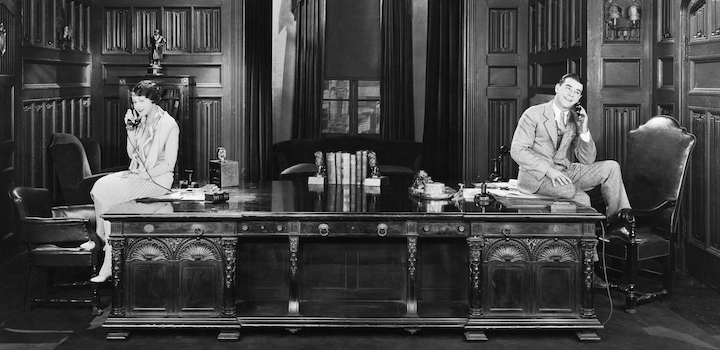What an Oxford Research Study Teaches us about Happiness in the Workplace
Money can’t buy you happiness, but this study shows that happiness will make you money.

Sunshine on my Call Centre
At Friday, we love data and people, especially data about people, so whenever a new happiness study is released, it’s an exciting day for us. The study, “Does employee happiness have an impact on productivity?”, led by respected Oxford Academic Jan Emmanuel De Neve, looks at the happiness of 1,800 sales staff in 11 BT call centres across the UK. The study shows that improving happiness increases sales.
Instead of using ambiguous questions like, “Overall, how satisfied are you with your job?” the Oxford researchers used questions about weekly happiness like, “Overall, how happy did you feel this week?” Using this question allowed the researchers to track changes in happiness and link it directly back to sales in the same week.
This simple study found that happy advisors made 13% more sales than unhappy advisors. By comparing the responses of the same people in different weeks, the study showed that becoming happier improved sales. Not only that, it used the weather to prove this. In sunnier weeks, advisors were happier and sold more. And since callers could call in from anywhere in the UK, the data showed that it was local weather that drove the boost, not national weather.
While this may seem obvious – people are happier in nice weather – the implications are significant. If something random like weather has an impact on sales, then imagine the level of impact that a proactive happiness initiative can have. In this context, efforts to improve culture or fix toxic cultures are good for morale and the bottom line.
The Impact of Positive Mood on Sales
For the conditions of the research study, a call centre was an ideal environment. Call centres are different from the average office workplace. Call centre employees have very little autonomy in choosing their tasks (answer calls), or who they interact with (they work alone). This meant that the effect of happiness on performance is strictly limited to the way the telephone agent interacts with customers in real time (their tone of voice, negotiation skills etc.).
The research found that positive mood had little effect on sales when the call was basic order taking. To caller and agent, it was just another transaction. While employee mood may have cheered up the caller, it had no impact on the overall sale.
However, employee happiness had a greater impact on complicated calls. When calls were related to TV and phone upgrades, or contract changes, then mood had a strong effect. Happy employees were more likely to listen better to callers and show stronger negotiation skills, leading to good solutions for the customer. In situations where unhappy customers called in, happy agents were able to control their emotions and mitigate caller problems more easily.
Because of the unique setting of the call centre, the actual effect of happiness on productivity is likely to be lower than in a typical office environment. Where roles have more autonomy people can choose what to work on, using their initiative to problem solve, to be creative, and interact with colleagues. This amplifies the effect of happiness on productivity.
Why BT Should Focus on Happiness
BT can’t rely on the British weather to improve happiness in the workplace, but why not try company-led initiatives like the ones we support at Friday – allowing organizations to change their culture and identify actions that lead to increased productivity.
Call centres can be unhappy places – that’s one thing the study made clear. In fact, over 30% of employee responses were very unhappy – the most common response on the survey. Only 17% indicated that they were unhappy. That’s a total of 47% of employees that weren’t enjoying their time at the call centre.
Shifting a person from very unhappy to very happy is quite difficult, but it is possible to move some of those that indicated they were unhappy into ok or better, and similarly happy to very happy. If BT were able to shift just half of the unhappy people into ok and half of ok into happy, then this would translate into significant extra revenue — estimated at £330,000 per week or over £17,000,000 annually.
There’s also the added benefit of reducing staff turnover. Studies indicate that turnover rates in call centres are 3-4x greater than the national average. Our research at Friday has demonstrated that a positive shift in happiness can result in 17% lower staff turnover across the following quarter. In BT, this would likely reduce recruitment and training costs by a further £500,000 per year. *(assuming that recruitment and training for a new employee cost 25% of annual salary – estimated here at £15,000 per year)*
Happiness in Your Workplace
What does this research mean for your office? It means that your actions towards improving happiness in your workplace matter. Short of always having nice weather, or moving a call centre to a tropical island, the solutions that a BT call centre could use to become happier are similar to the ones you can implement in your office today.
Read our top tips on improving employees' experience of work here